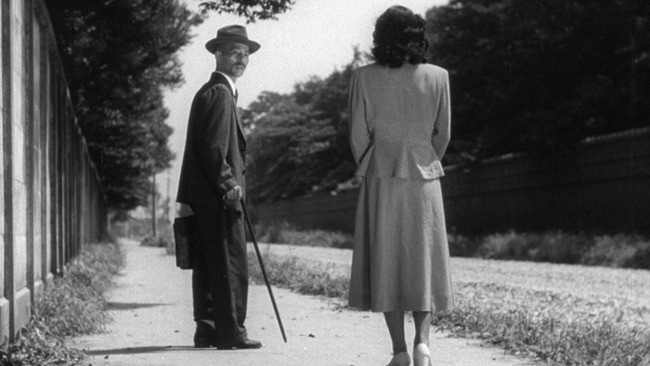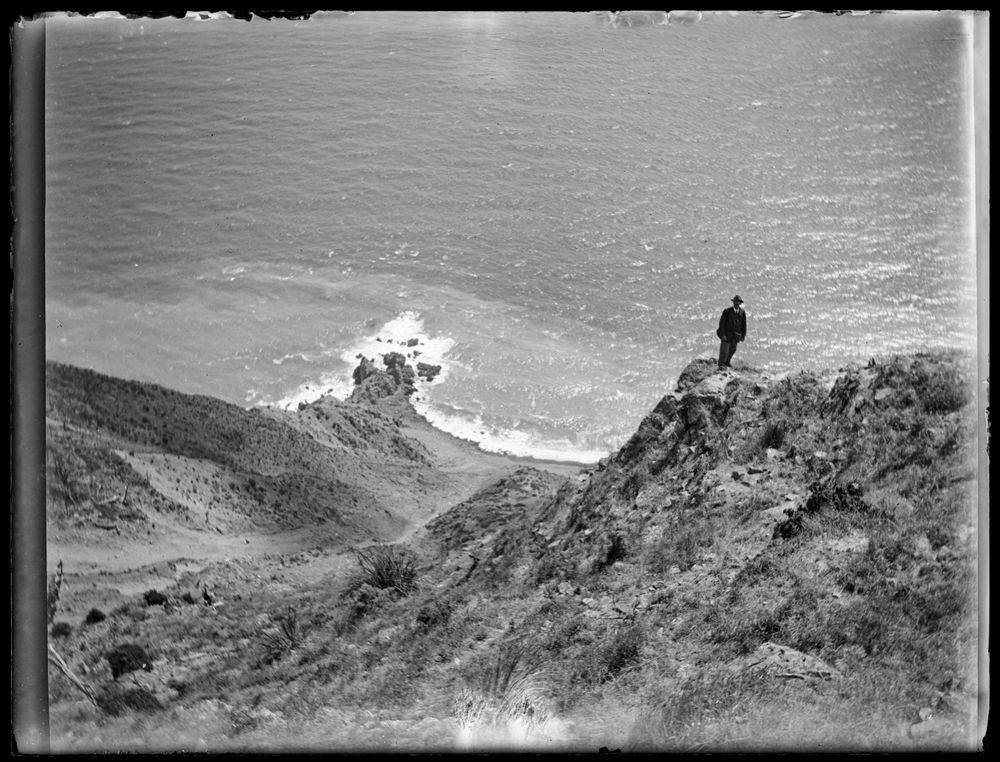Two Long Poems / Два длинных стиха

Yasujirō Ozu
Window frame. A distant landscape.
A hand hovered in the air, preparing
to tip the tea into the teapot.
The sound of leaves. The trees lose their
last leaves, hiding around corners
like children in love for the first time.
A skyscraper. There are many of them.
A strip of road marker emphasizes marker-like
their importance to the economy.
There are faces in their windows.
They watch the leaves
as they fade.
And in the province — an ear of wheat.
The house stands anticipating
the European way of thinking
before self-isolation.
A strip of sunlight, like
the narrowed pupil of a cat,
is watching us, coloring with its
warmth the floorboards.
We look at them and they
look at us as if we were
from a completely different world.
The paper umbrella as easily
burns as the sky at sunset.
The camera stands. Silence.
People stare at each other in silence
increasing the distance
between each other.
That’s how the circle closes. A canary whistle.
A body lying there. A bride given in marriage.
Scream. Joy. A tear falls on the tatami
like a grain of wheat on the ground.
The tear will sprout in the future
someone’s-eye-like and someone’s-wrinkles-like. A hand
of a Japanese lady’s raised over her hair
like the swords were raised
by her ancestors, ready for the battle.
Hair pinned back with a chopstick.
Simplicity. Loneliness.
Life becomes like
footage from a Bresson movie –
clouds moving slowly outside the window.
Mean streets where darkness hides
and its willing-to-hide-you-from-everyone kindness.
There are signs everywhere indicating
that there are still places left in these taverns
if they (i.e. the signs)
are lit up. Nearby the graffiti,
shimmering into the advertising
sings in different languages –
there’s a Coca-Cola peeking into someone’s attic;
and there’s a drugstore lantern illuminating
an advertisement for another concert
or underwear. Cars in the void of air
between the layers of houses. Nature
only rewards us with silence
when we become indifferent to it.
The beach. Sand between fingers. A hand on a hand.
An abrasion on a thigh. A heart locked between
the ribs. The absence of bodily contact.
That’s how the value of a handshake is maximized.
Moisture creeping under the folds.
A kiss that didn’t happen on camera,
that didn’t reach the final stage,
that didn’t make it into the director’s cut of the movie.
An angle. A lock of hair. Narrow is an eye
because that’s the only way to start appreciating
the lack of color/light. An outfit that
will never be worn. A smile. A painting
all over the wall. It’s a restaurant, and you can only see
at knee level. The fold
of a kimono hides someone’s knees
like the fold of skin near the eyes
hides aliens that are unnecessary to this tribe.
A hand like a brush that paints with gestures in the air.
A stack of used magazines on the coffee table
falls to the floor and becomes a sea
bringing the breeze to its knees. There is a mask on his face.
Instead of a mask there is a face. Kabuki is coming
to every home. An empty seat at the dinner table.
The flap of a distant bird’s wing like the wing
of an airplane, reminds of a war full of zeros.
A girl by the shore. Waving her hand without noticing
how she steals this gesture from the sea. A letter
come too late. In it there is
time. Close it then, or you’ll forget
the past. A fist unclenches like a flower.
A strange writing on a strange paper. As people age,
They commit a rejection
from one another. They lose themselves and others –
never to be found again.
A streetcar. The jolt. The indifference
of everyone else in it. This is how the day ends.
That’s how the circle forms.
///
Ясудзиро Одзу
Оконная рама. Пейзаж вдали.
Рука зависла в воздухе, готовясь
опрокинуть чай в чашу из чайника.
Шум листвы. Опадают деревья,
прячущиеся за углами, словно
впервые влюбившиеся дети.
Небоскрёб. Их множество.
Полоса дороги маркером подчёркивает
их значимость для экономики.
В их окнах чьи-то лица.
Они смотрят за тем,
как увядает листва.
А в провинции — колос пшеницы.
Дом стоит, предвосхитивший
европейский тип мышления
ещё до самоизоляции.
Полоска солнечного света, словно
сузившийся кошачий зрачок,
наблюдает за нами, окрасив
своим теплом половицы.
Мы смотрим на них, а они
смотрят на нас, как будто бы мы
из совершенно иного мира.
Бумажный зонт также легко
горит, как небо при закате.
Камера стоит. Тишина.
Люди молча смотрят друг на друга,
увеличивая расстояние
между друг другом.
Так замыкается круг. Свист канарейки.
Лежит тело. Выданная замуж невеста.
Крик. Радость. Слеза падает на татами,
как зерно пшеницы — на землю.
Прорастёт потом слеза в будущем
чьим-то глазом и чьими-то морщинами. Занесена рука
японки над волосами,
как заносили предки её
когда-то мечи для схватки.
Заколоты волосы палочкой.
Простота. Одиночество.
Жизнь становится словно
кадры из фильма Брессона –
медленно движутся за окном облака.
Злые улицы, в которых прячется тьма
и её готовая ото всех укрыть доброта.
Повсюду надписи, свидетельствующие о
наличии мест в этих кабаках
в случаях, если они (т.е. надписи)
светятся. Рядом граффити,
переливающиеся в надписи
рекламы на разных языках:
вон там «Кока-кола» заглядывает кому-то на чердак;
а там — приаптечный фонарь освещает
рекламу очередного концерта
или белья. Автомобили в пустоте воздуха
между слоями домов. Природа
награждает нас тишиной только тогда,
когда мы становимся ей безразличны.
Пляж. Песок между пальцев. Рука на руке.
Ссадина на бедре. Запертое меж рёбер
сердце. Отсутствие телесных касаний.
Так увеличивается ценность рукопожатий.
Влажность, залезающая под складки.
Поцелуй, не случившийся в кадре,
не достигший финальной стадии,
не попавший в режиссёрскую версию фильма.
Угол. Локон волос. Узок глаз,
ведь только так начинает цениться
отсутствие ц/света. Наряд, который
никогда не наденут. Улыбка. Картина
во всю стену. Ресторан, и видно всё
только на уровне колена. Складка
кимоно прячет чьи-то колени,
как складка кожи у глаз –
чужих, ненужных этому племени.
Рука, словно кисть, что в воздухе рисует жестами.
Стопка использованных журналов на кофейном столике,
упав на пол, превращается в море,
поднимающее на колени бриз. На лице — маска.
Заместо маски лицо. Кабуки идёт
в каждый дом. Пустое место у обеденного стола.
Взмах крыла дальней птицы, подобный
крылу самолёта, напоминает о войне, полной нулей.
У берега девушка. Машет рукой, не замечая,
как она ворует этот жест у моря. Письмо,
пришедшее слишком поздно. В нём
время — закрой его тогда, а то забудется
прошлое. Кулак разжимается, словно цветок.
Письмена чужие на бумаге чужой. С возрастом люди
совершают отторжение друг
от друга. Теряют себя и других,
чтобы после — никогда не найти.
Трамвай. Тряска. Безразличие всех
прочих в нём. Так завершается день.
Так образуется замкнутый круг.
. . .

Odyssey
to S.M.N.
Don’t touch me
Don’t touch me
Don’t touch me
Don’t touch me
Nick Cave and the Bad Seeds. Girl in Amber
You came into my life
like a fog.
So sudden, unexpected,
carefree and innocent.
So… that, had I looked
out the window a little later,
you would have dissolved into the new day,
and I would never have known
that I existed with you simultaneously
at this time, this hour, this moment…
in the same space.
And you sprawled on the ground,
like a mother sheltering her children
from the explosions of grenades and bombs;
smiling you wandered among the birch trees,
drinking their sap.
My gaze all over you, shrugged like Atlas,
like a painting by Degas or Matisse
triumphantly crucified on museum walls.
And it is as if it is autumn again, and the mestizo
leaves fall like the guillotined head of a king,
who has realized what democracy means.
Once again something has happened in Burma.
Unable to find rhymes
for “courage”, “youth”, “life”.
We’re not even 30, but it’s like our bones are aching.
And Homer walks by
on his way to Osiris,
arguing with Charon about something
which,
like a crown fallen from a king on his throne,
glistens in the blood of others.
The poet walks past and sees
us.
This is how he composes The Odyssey:
watching me enter you,
like heaven… I try to take you in my hands,
like flowers, but a sudden
gust of wind carries you away like a memory of old times,
like mushroom spores,
spreading all over the continent,
infecting the ants with a death wish.
Ah, somewhere out there, another argument
is heard between men,
and like a voyeur I’m widening a gap
between that other world (?) and ours
to see the light… Yes, it’s you.
I see you now
in every poem I write, new and old.
You wander somewhere among my lines,
a well-traveled path.
Or maybe it is me
who wants to see you there.
You turn into night — you take shape,
growing like a rhythm, and in front of me –
the silhouette of a man, black as a hole.
And in that hole you die with the tail of a comet,
with all the advice that
you left me as a dowry.
I come to you, I put my hands out in front of me
like a blind man who’s lost his cane.
I point my hands toward you, and like a needle.
They pierce your sternum, which I then
tear, break like an orange peel. As hard as you could,
you kept quiet, you smiled.
But it hurts, doesn’t it?
And you just sang, struggling to hit an “A”.
And I kept breaking your sternum,
I kept tearing pieces off,
as if
hoping to create a human being.
Now your rib is my feather,
and I use it to chew my way through.
I’m trying to hurt you,
as if to find my soul.
I will suffer for the grief I’ve committed
and thereby enter heaven with you.
Only those who suffer go to heaven,
don’t they, God? You are one, and that’s probably why there is
one syllable in You. To make it easier
to call You without interrupting Your thoughts.
That’s it… the barrier is broken. I’m pushing your space aside,
as if entering a tent, its awnings.
I have entered, and you are night. Your heart is up there somewhere.
It’s the moon, it’s an unexploded grenade,
for there is no difference between them.
Someday, slowed down, the moon
will come too close to us,
and it will be torn apart by the Earth’s gravity.
I guess that’s what they mean
when they talk about love. And so I’m wandering around
in this incomprehensible something,
in this darkness. The smell of Chanel everywhere
on your body like an overcoat,
protecting you from the cold of other people’s
gazes and bodies. There are meadows and wind everywhere.
So empty, like in Platonov’s The Foundation Pit,
and yet it looks terribly new,
beautiful… I’m coming to you, holding out my hands
in a kind of vulgar
gesture,
and you look at me like a border guard,
as if I hadn’t paid the toll…
You look at me with mirrored eyes –
in them I see, “Don’t touch me, ”
written in red capillary hairs.
So I lower my hand and let it fall,
stick to my body like snow to asphalt.
I think there’s a kind of moralizing in all of this,
some kind of self-condemnation, and it’s like Maugham
only in reverse –
suddenly what you want at the beginning you don’t want at the end,
and I know what they mean by
“being stuck Inside of Mobile
with the Memphis Blues Again.” But the night goes by –
I still ac (know)ledge you.
You’re looking at me… or should I describe it
the other way around? That you looking at me
is me looking at you? And your eyes are on fire,
like two huge black coals.
You run like a primitive man,
like the wind through the cracks
and keyholes in giant hearts,
and carry those two black coals onward
into another cave, into another tribe,
and bury them in the brushwood
to give birth to a new life. This is how, without even
trying to rip out someone’s rib,
you disappear like forests, time, lakes,
mind, memory, warmth, generations, smile,
cold, fear, and leave me all alone.
///
Одиссея
С.М.Н.
Don’t touch me
Don’t touch me
Don’t touch me
Don’t touch me
Nick Cave and the Bad Seeds. Girl in Amber
Ты возникла в моей жизни,
как туман.
Так неожиданно, нежданно,
легкомысленно и невинно.
Так, что, стоило бы мне,
выглянуть в окно чуть позже,
ты бы растворилась в новом дне,
а я бы так никогда и не узнал,
что существовал с тобой одновременно
в это время, в этот час и миг…
в одном пространстве.
И ты распласталась по земле,
словно мать, укрывая своих детей
от взрывов гранат и бомб;
улыбаясь, ты бродила среди берёз,
выпивая их соки.
И я смотрел на тебя, расправившую плечи,
как на полотно Дега или Матисса,
которое распяли на стене музеев.
И как будто бы снова осень, и листья-метисы
падают, как отрубленная гильотиной голова короля,
понявшему, что значит демократия.
И опять что-то случилось в Бирме.
Не в состоянии подобрать рифмы
к «жизни», «смелости», «молодости»
нам нет и 30, но уже как будто ломит кости.
И мимо проходит Гомер,
направляясь к Озирису,
о чём-то споря с Хароном,
что,
как упавшая с короля на троне корона,
блестит в крови других.
Поэт идёт мимо нас и видит
нас.
Так он сочиняет «Одиссею»,
наблюдая за тем, как я вхожу в тебя,
как в рай… Я пытаюсь набрать тебя в руки,
как цветы, но резкий
порыв ветра уносит тебя, как память по былым
временам, как споры грибов,
разнося их по всему континенту,
заражая тем самым муравьёв желанием к смерти.
Ах, где-то там очередные споры
слышатся между людьми,
и, как вуайерист, я приоткрываю щель
между тем, другим миром (?) и нашим,
чтобы увидеть свет… Да, это ты.
Я тебя теперь вижу
в каждом моём стихе: новом и старом.
Ты бродишь где-то среди моих строчек,
как по проторенным тропинкам…
А может это я
хочу тебя увидеть там?
Ты превращаешься в ночь: обретаешь форму,
растёшь, как ритм, и вот передо мной –
силуэт человека, чёрного, как дыра.
И в этой дыре ты умираешь хвостом кометы
и все твои советы эти,
которые ты мне оставляла, как приданное.
Я подхожу к тебе, выставляю вперёд руки,
как слепой, потерявший трость.
Я устремляю руки к тебе, и они как игла
протыкают тебе грудину, которую я после –
разрываю, разламываю, как корку апельсина. Как могла,
ты молчала, улыбалась. Но ведь это больно (?)
А ты лишь пела, с трудом попадая в «ля».
А я продолжал ломать грудину,
отрывал от неё куски,
словно
надеясь создать человека.
И теперь твоё ребро — моё перо,
я им себе прогрызаю путь,
стремлюсь тебя задеть,
будто этим найду свою душу,
буду страдать от совершённого горя
и тем самым попаду в рай к тебе.
Ведь в рай идут только те, кто страдают,
не так ли, Боже? Ты един, и, наверно, поэтому в тебе
один слог. Чтобы легче было тебя
звать, не прерывая мысли ход.
Всё… барьер сломлен: раздвигаю твоё пространство в стороны,
как будто, входя в палатку, — её навесы.
Я вошёл, и ты — ночь. Твоё сердце где-то там, вверху.
Это луна, это неразорвавшаяся граната.
Ведь между ними нет разницы.
Когда-нибудь, замедлившись, луна окажется
слишком близко к нам,
и её разорвёт на части силой гравитации Земли.
Наверное, это и есть то, что имеют ввиду,
когда говорят о любви. И вот я брожу
в этом непонятном нечто,
в этой тьме. Запах Chanel повсюду
на твоём теле воспринимается как шинель,
защищающая от холода других
взглядов и тел. Повсюду луга и ветер.
Так пусто, как в «Котловане» Платонова,
и, тем не менее, выглядит страшно по-новому,
красиво… Я иду к тебе, протягиваю руки
в как-то пошлом
жесте,
а ты смотришь на меня пограничником,
как на не уплатившего пошлину…
Ты смотришь на меня зеркальным глазами,
и в них я вижу: «Don’t touch me»,
написанное красными волосками капилляров.
Поэтому я, опуская руку, позволяю ей упасть
и прилипнуть к телу, как снег — к асфальту.
По-моему, в этом всём есть какое-то нравоучение,
какой-то укор самому себе, и сюжет развивается
по Моэму, только наоборот:
внезапно того, чего ты хотел вначале, в конце уже не хочется,
и я понимаю, что имелось ввиду насчёт:
«застрять в автомобиле вновь
с мемфисским блюзом»… Но ночь проходит,
а всё ещё (у)знаю тебя.
Ты смотришь на меня — или лучше описать
это всё наоборот? Что ты, смотрящая в меня,
это я, смотрящий в тебя? — и твои глаза горят,
как два громадных чёрных уголька.
Первобытным человеком ты бежишь,
уподобляясь ветру, сквозь щели и замочные
скважины в гигантских сердцах
и несёшь эти два уголька дальше
в чужую пещеру, в чужое племя,
чтобы, похоронив их в хворосте,
родить новую жизнь. Так, даже без того,
чтобы попытаться выдрать чьё-то ребро,
ты исчезаешь, как леса, время, озёра,
ум, память, тепло, поколения, улыбка,
холод, страх… и оставляешь меня совсем одного…
Стихотворения Yasujirō Ozu («Ясудзиро Озу») и Odyssey («Одиссея») были впервые опубликованы на английском в Интернет-журналах Lenticular и Teiresian соответственно. Оригиналы на русском публикуются вместе с английским переводом на syg.ma лично автором.
Подписывайтесь на телеграм-канал: https://t.me/art_think_danger
Подписывайтесь на инстаграм: https://www.instagram.com/hortusconclusus1587/
Подписывайтесь на Medium: https://medium.com/@hortusconclusus
Подписывайтесь на syg.ma: https://syg.ma/@hortusconclusus
